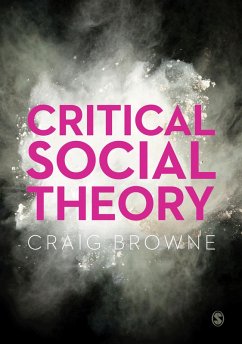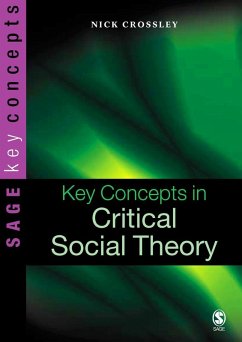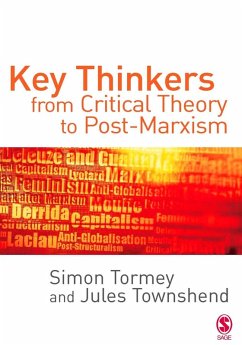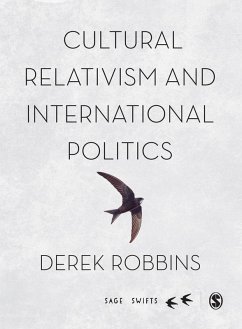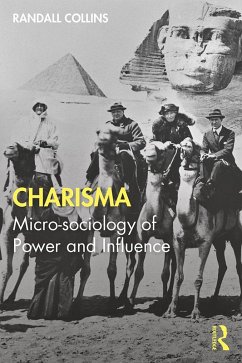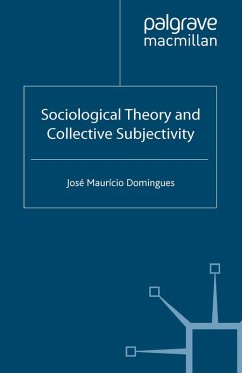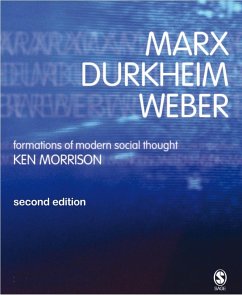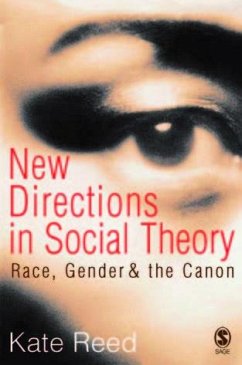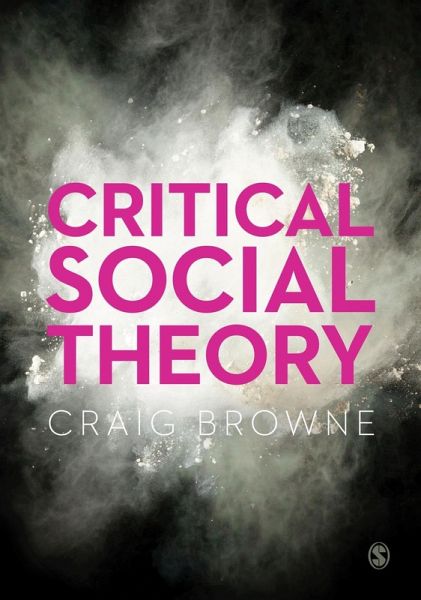
Critical Social Theory (eBook, PDF)
Versandkostenfrei!
Sofort per Download lieferbar
37,95 €
inkl. MwSt.
Weitere Ausgaben:

PAYBACK Punkte
19 °P sammeln!
In this accomplished, sophisticated and up-to-date account of the state of critical social theory today, Craig Browne explores the key concepts in critical theory (like critique, ideology, and alienation), and crucially, goes on to relate them to major contemporary developments such as globalization, social conflict and neo-liberal capitalism.Critical theory here is not solely the work of Adorno, Horkheimer, Marcuse and Habermas. The book begins with the Frankfurt School but uses this as a base to then explore more contemporary figures such as: Nancy Fraser Axel Honneth Luc Boltanski Corneliu...
In this accomplished, sophisticated and up-to-date account of the state of critical social theory today, Craig Browne explores the key concepts in critical theory (like critique, ideology, and alienation), and crucially, goes on to relate them to major contemporary developments such as globalization, social conflict and neo-liberal capitalism.
Critical theory here is not solely the work of Adorno, Horkheimer, Marcuse and Habermas. The book begins with the Frankfurt School but uses this as a base to then explore more contemporary figures such as:
A survey of critical social theory for our times, this is an essential guide for students wishing to grasp a critical understanding of social theory in the modern world.
Critical theory here is not solely the work of Adorno, Horkheimer, Marcuse and Habermas. The book begins with the Frankfurt School but uses this as a base to then explore more contemporary figures such as:
- Nancy Fraser
- Axel Honneth
- Luc Boltanski
- Cornelius Castoriadis
- Ulrich Beck
- Anthony Giddens
- Pierre Bourdieu
- Hannah Arendt
A survey of critical social theory for our times, this is an essential guide for students wishing to grasp a critical understanding of social theory in the modern world.
Dieser Download kann aus rechtlichen Gründen nur mit Rechnungsadresse in A, D ausgeliefert werden.




